EXAM 2 Philosophy :I
1/41
There's no tags or description
Looks like no tags are added yet.
Name | Mastery | Learn | Test | Matching | Spaced |
|---|
No study sessions yet.
42 Terms
Utilitarianism
Ethical theory judging actions based on maximizing overall happiness or utility
Harm Principle
“We have a moral obligation not to perform an act that causes harm to others”
Group Principle
“We have a moral obligation not to perform an action if this action makes us a member of a group whose actions together cause harm.”
Ideal Law Principle
“We have a moral obligation not to perform an action if it ought to be illegal”
Prima facie wrong
Wrong unless overridden by stronger moral considerations
Consequentialism
Ethical theory evaluating actions based on their consequences
Hedonistic act utilitarianism
Belief that actions are right if they maximize pleasure and minimize pain
Part causes part if whole causes whole
Concept where parts contribute to the effects of the whole
Expect vs Actual
Discrepancy between expected outcomes and actual results of actions
B&V capabilities
Life- Relates to suicide rates due to social media Emotions-relates to depression due to social media
AGCC
anthropogenic global climate change
MP
if there are at least two things you could easily do in a situation, and one option causes more expected harm than a second option, you should not do the first option unless some stronger moral reason obligates you to do the first option.
Hillers Argument (A)
Every Sunday Drive causes net expected increase in AGCC (compared to not Sunday Driving).
Hillers argument( B)
If a Sunday Drive causes a net expected increase to AGCC, it causes net expected increase in harm
S-A intuitive argument
In order to cause harm or risk it, a Sunday Drive needs to make a difference to the existence or non-existence of the harms or risks of harms from global
warming (flooding, heat waves, etc.). But your actions do not make this difference: the harms from global warming will occur independently of your emissions from a Sunday Drive.
S-A theoretical argument
An action that is not by itself sufficient to cause harm is still a cause of harm sometimes (e.g. joining others to push a car off a cliff when they could do it without you). But in order for that to be so, you must either intend to cause harm, or your action must be unusual in the circumstances. Neither applies to Sunday Drive: you are not intending to cause harm, and joy driving is not an unusual act. So, Sunday Drive does not cause harm.
H 1.1:
It is Prima facie wrong to Sunday drive
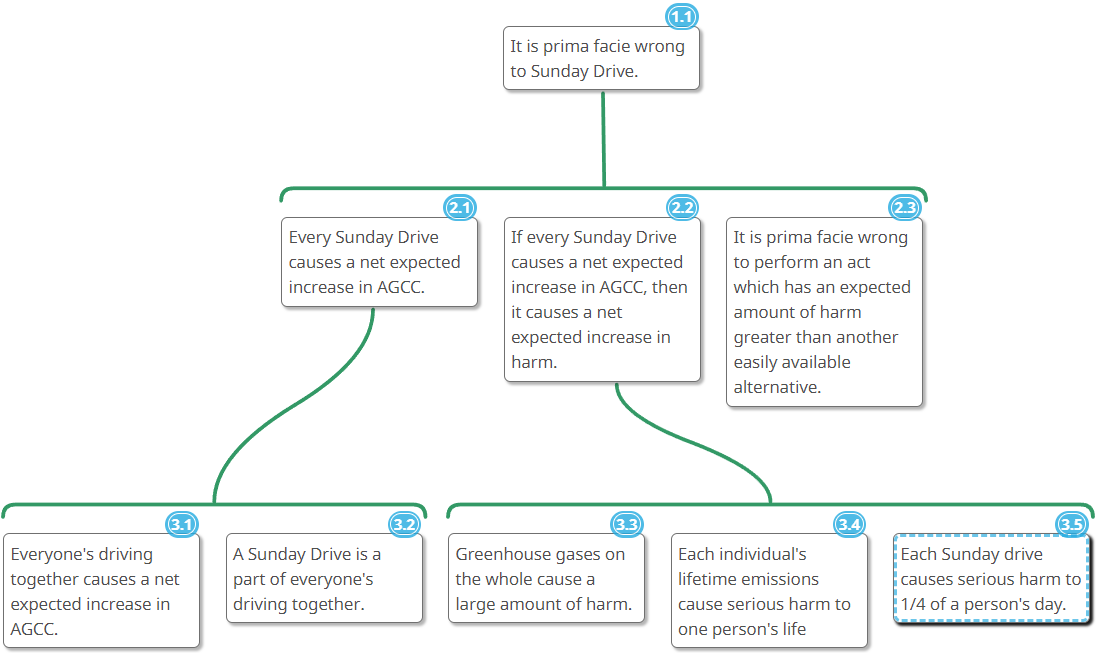
H2.1
Every Sunday drive causes a net expected increase in AGCC
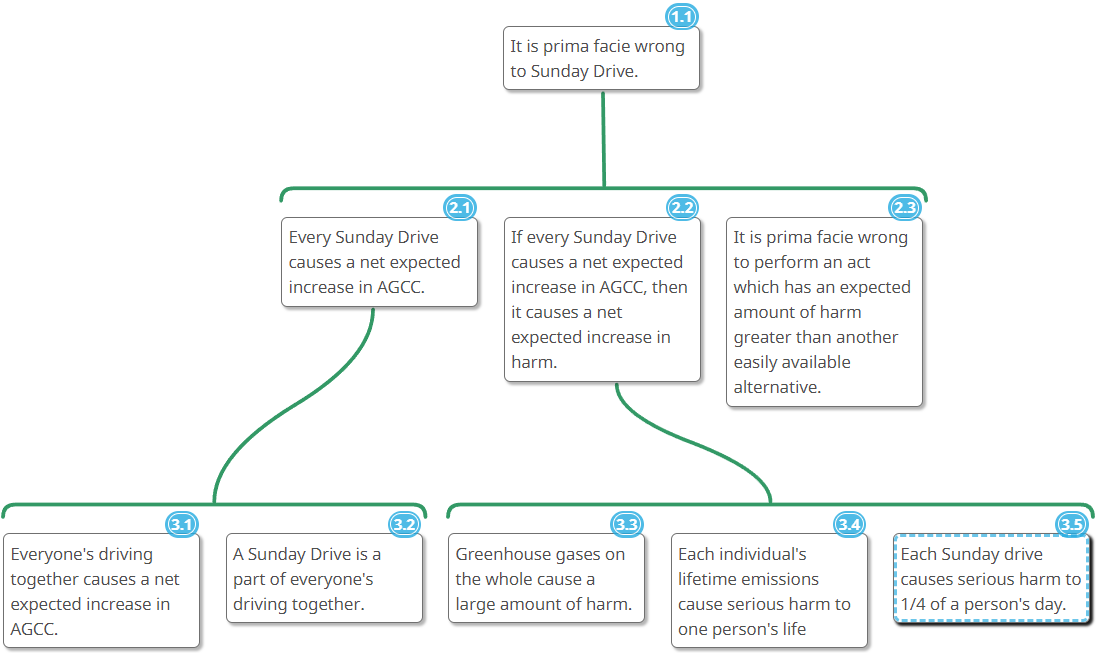
H2.2
If every Sunday drive causes a net expected increase in AGCC, then it causes a net expected increase in harm
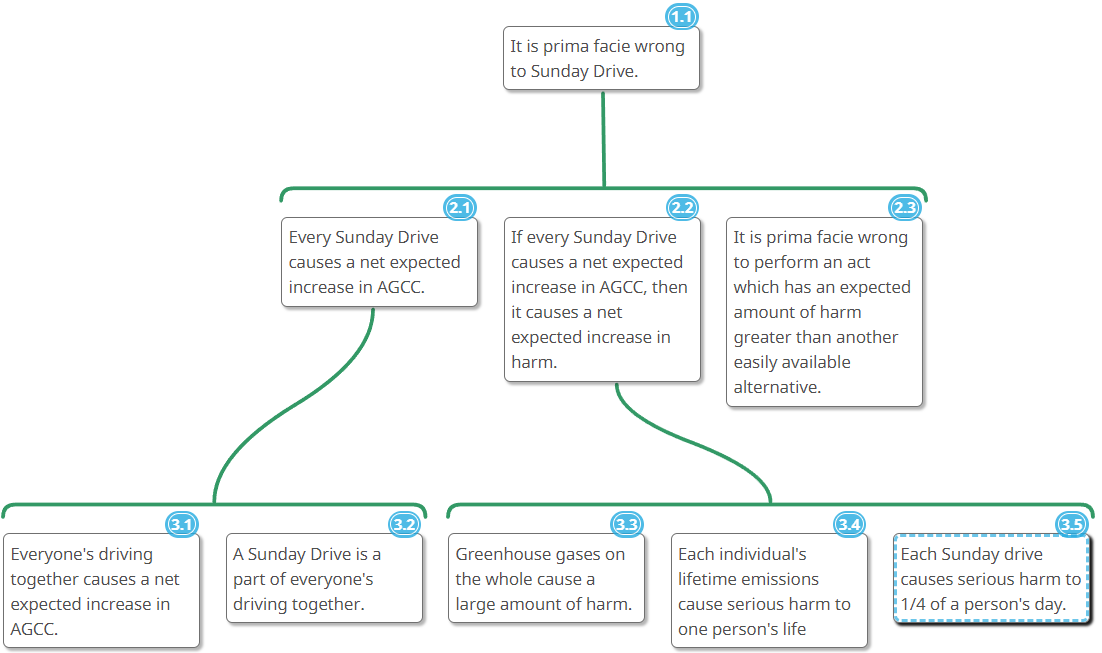
H2.3
It is prima facie wrong to perform an act which has an expected amount of harm greater than another easily available alternative
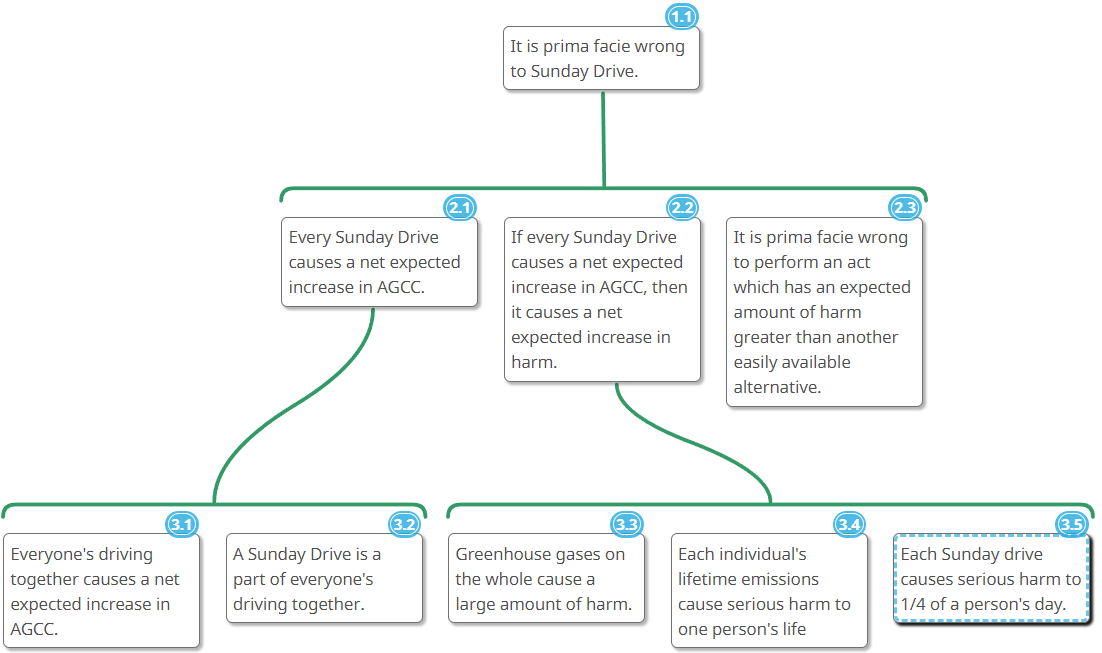
H3.1
Everyone driving together causes a net expected increase in AGCC
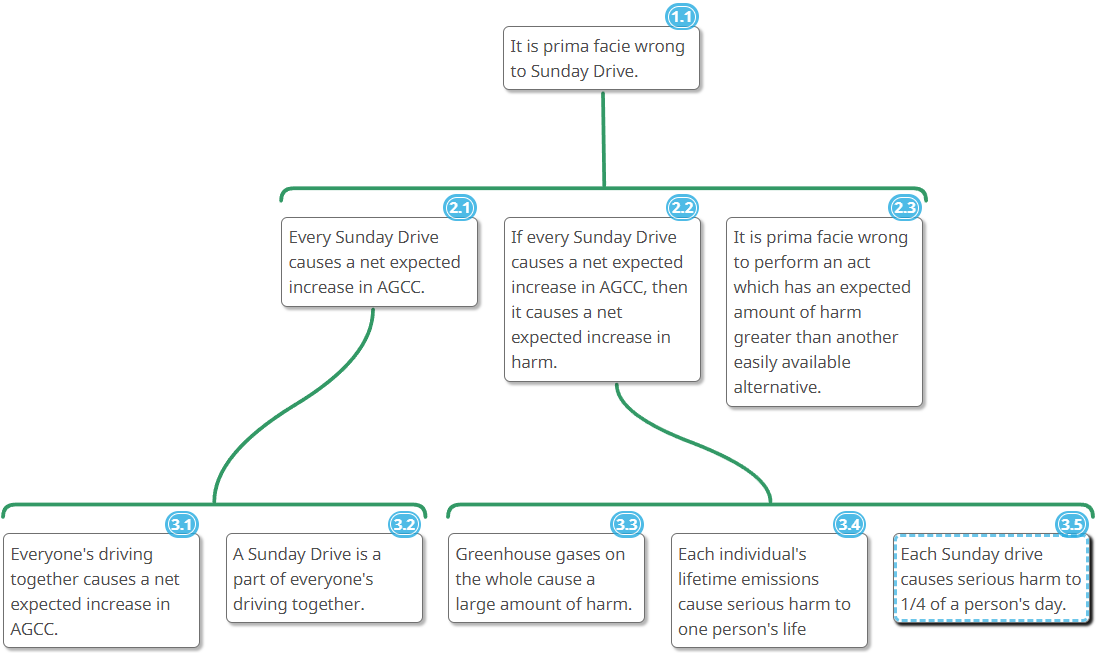
H3.2
A Sunday Drive is a part of everyone’s driving together
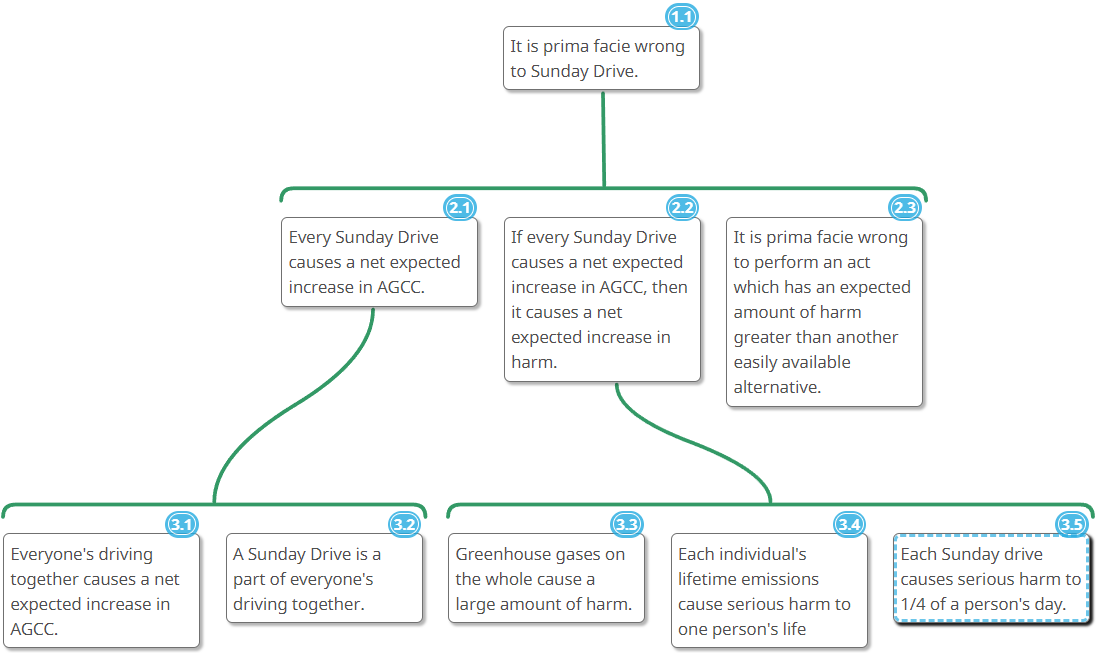
H3.3
Greenhouse gases on the whole cause a large amount of harm
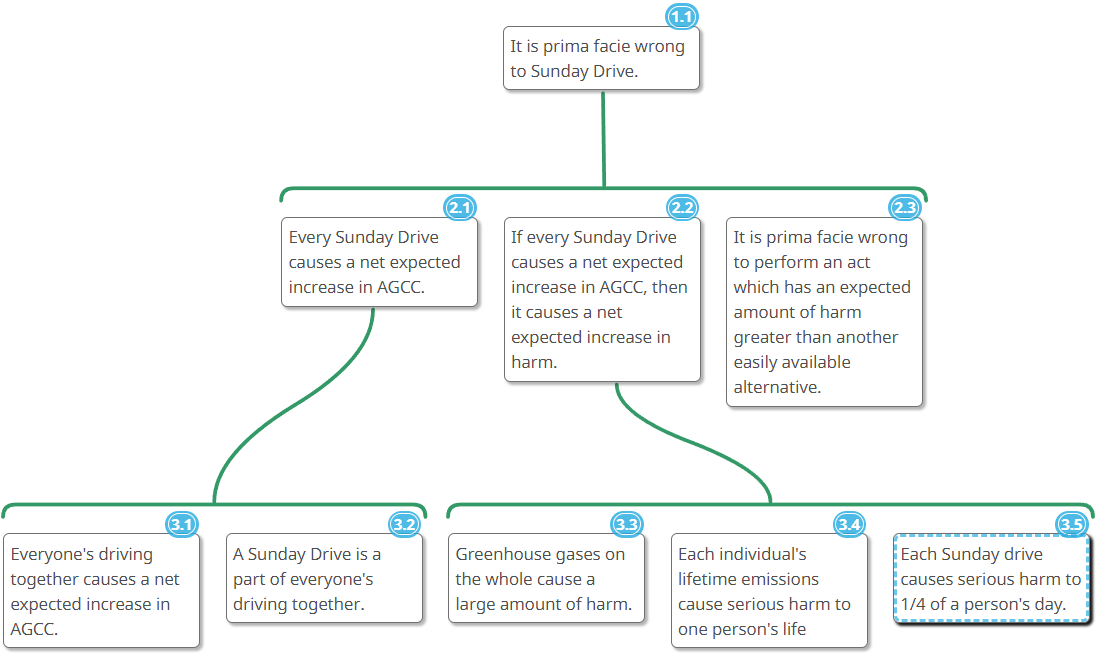
H3.4
Each individual’s lifetime emissions cause serious harm to one
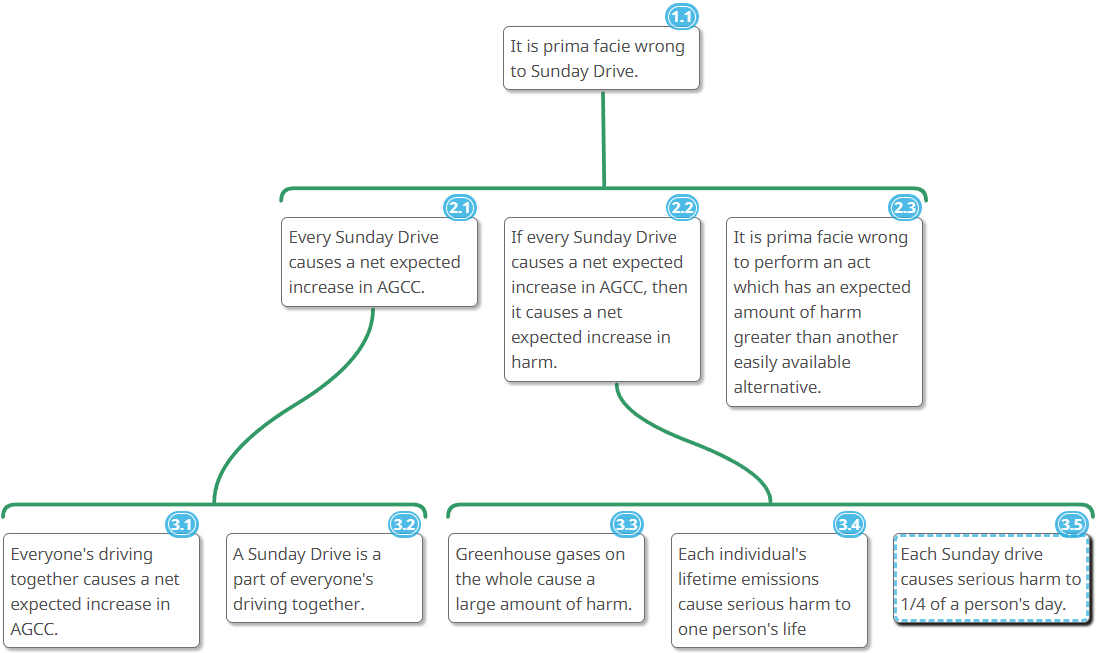
H3.5
Each Sunday drive causes serious harm to ¼ of a person’s day
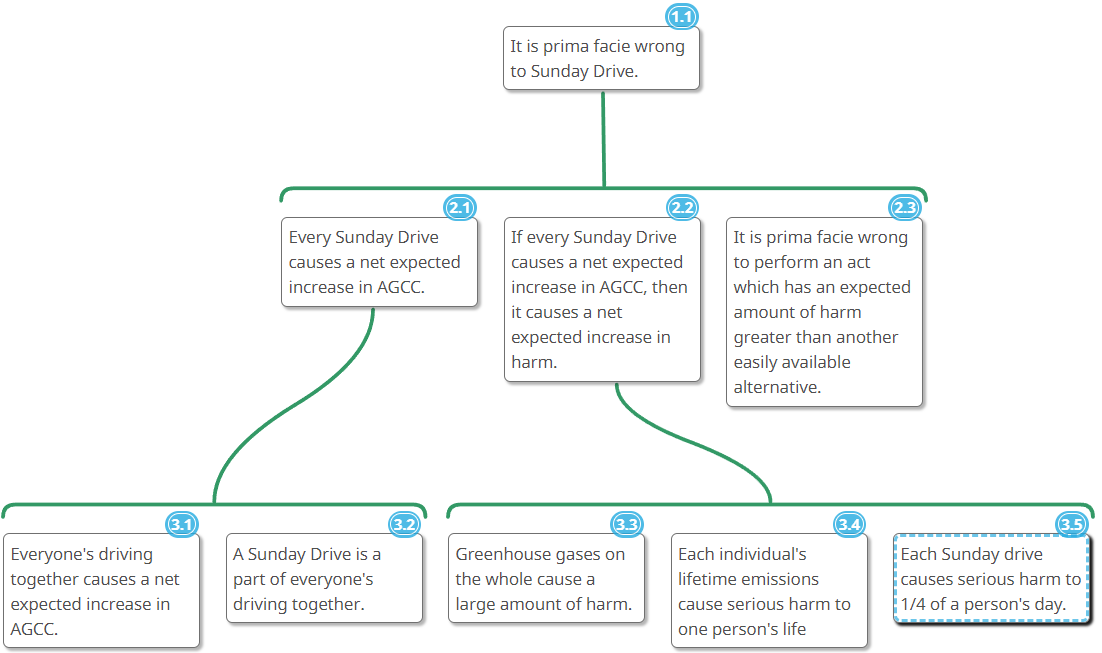
B1.1
The harm social media causes to social media addicts is morally wrong
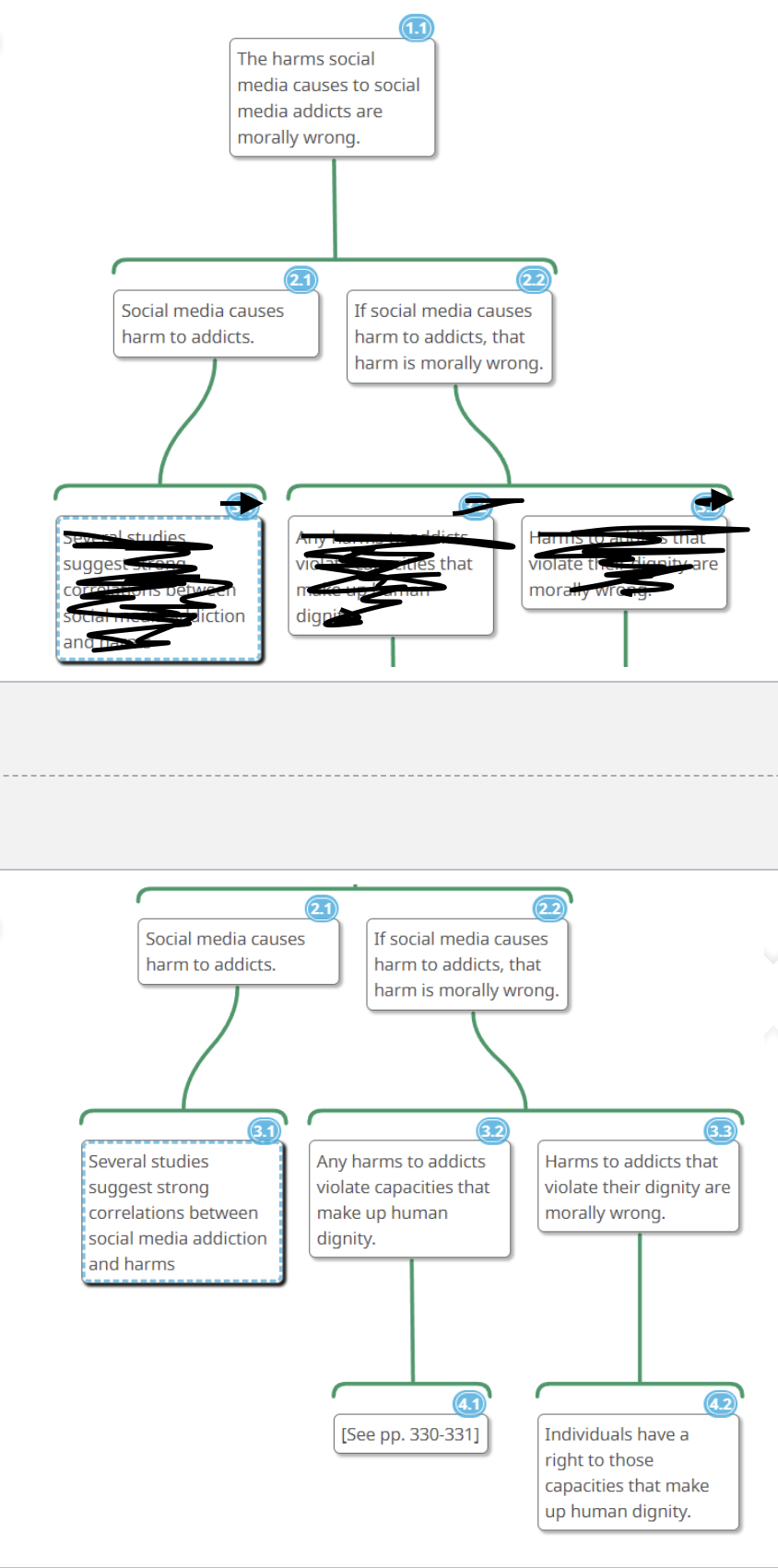
B2.1
Social media causes harm to addicts
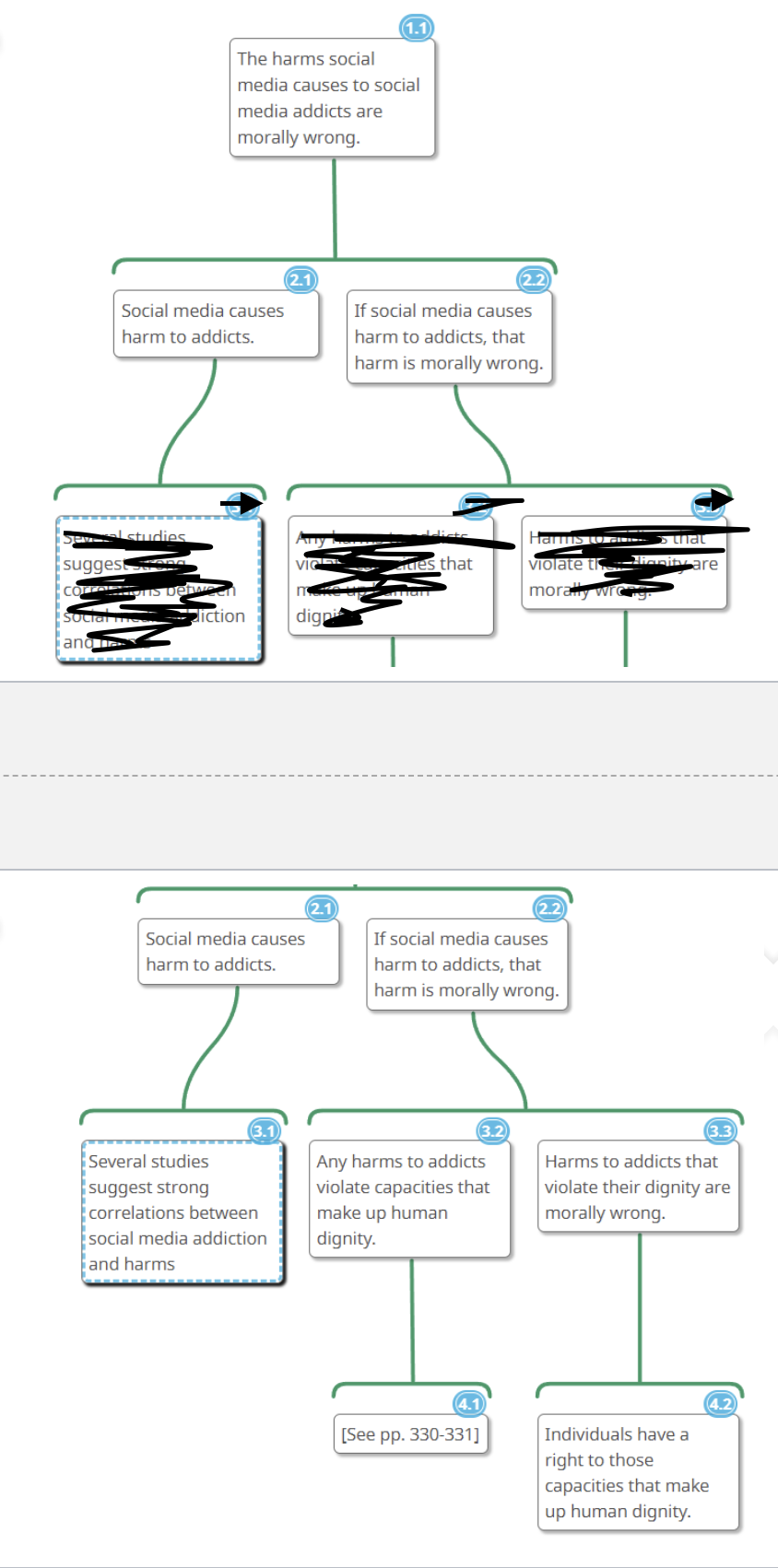
B2.2
If social media causes harm to addicts that harm is morally wrong
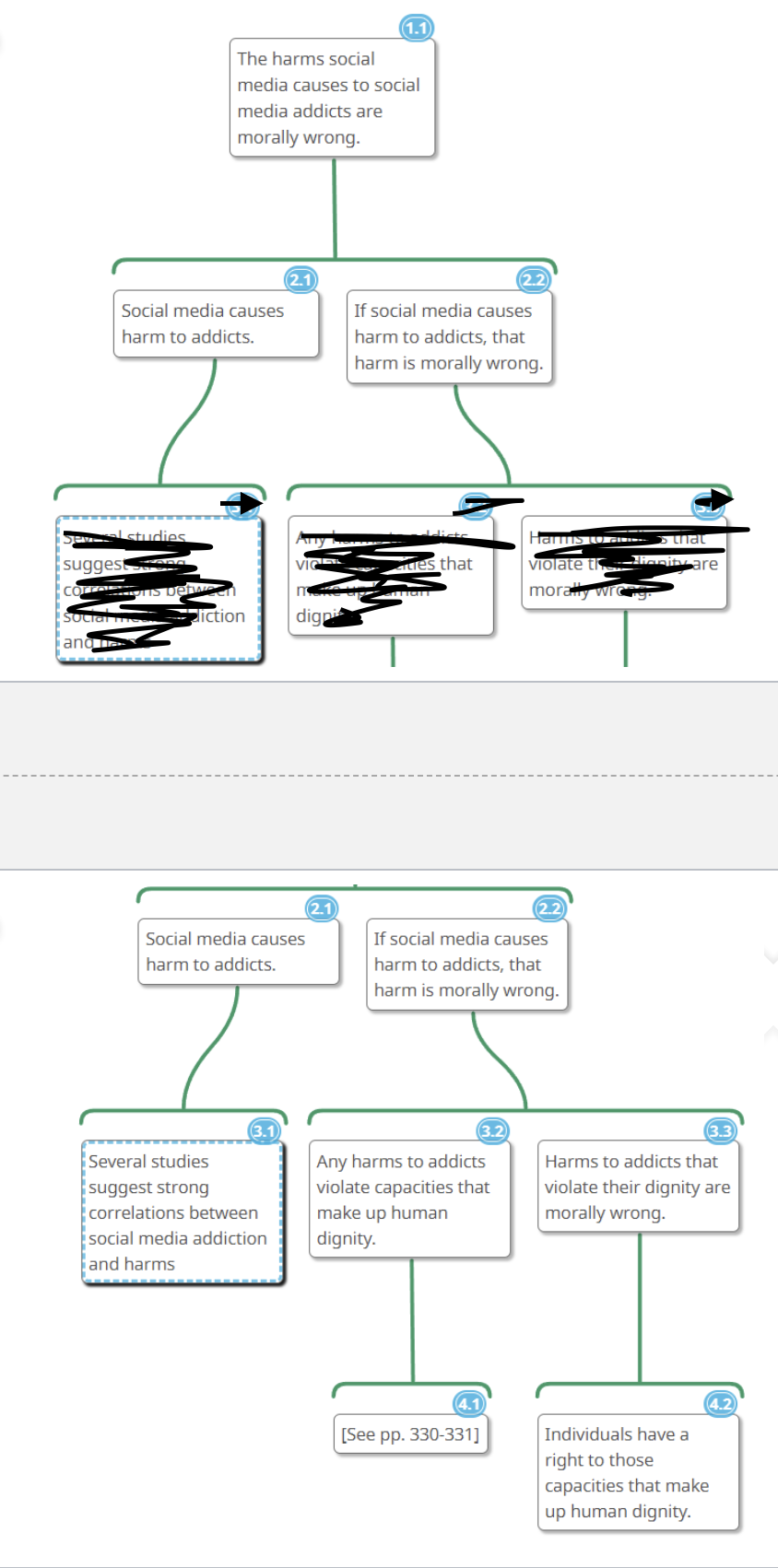
B3.1
Several studies suggest strong correlations between social media addiction and harms
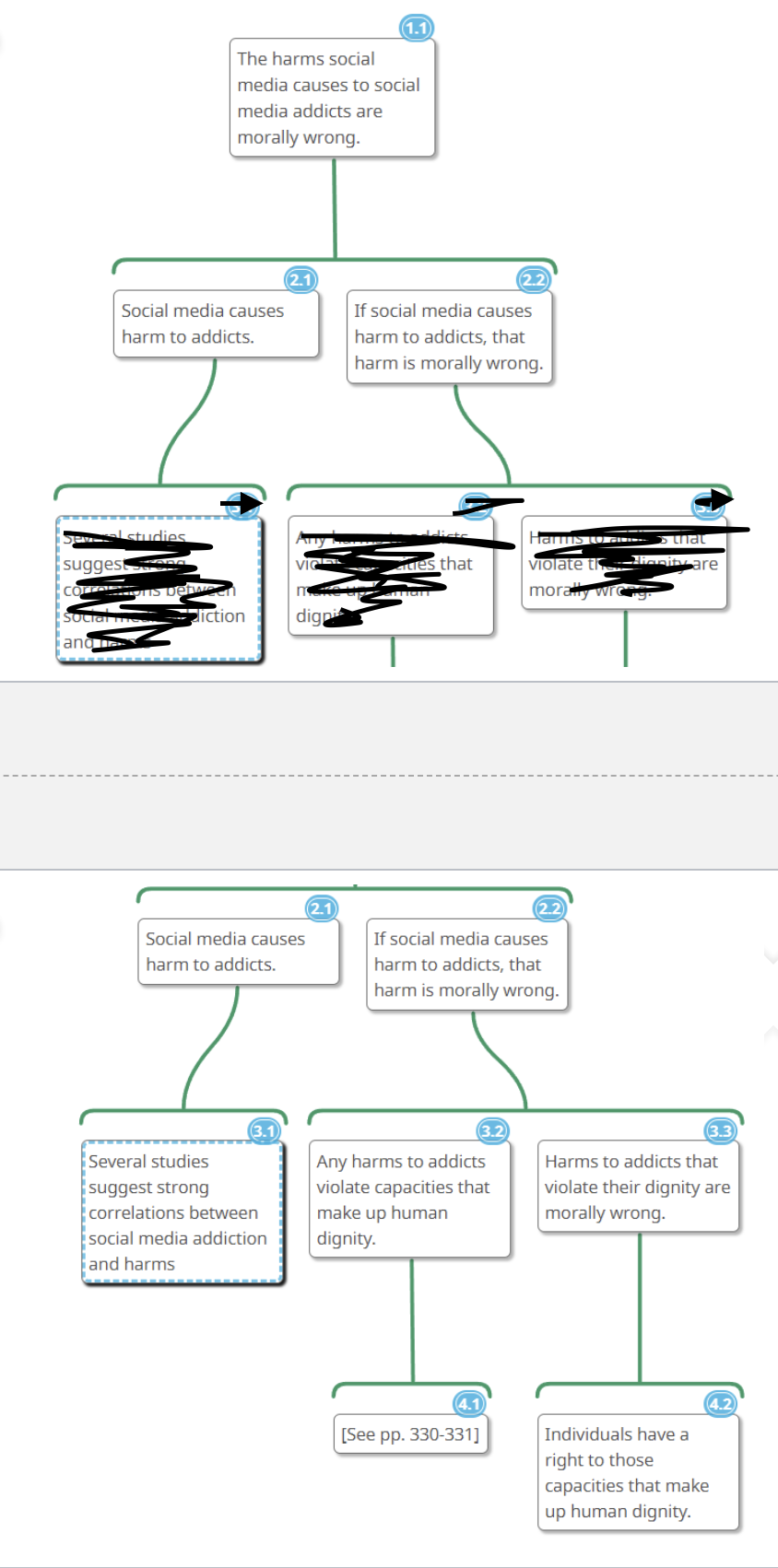
B3.2
Any harms to addicts violate capacities that make up human dignity
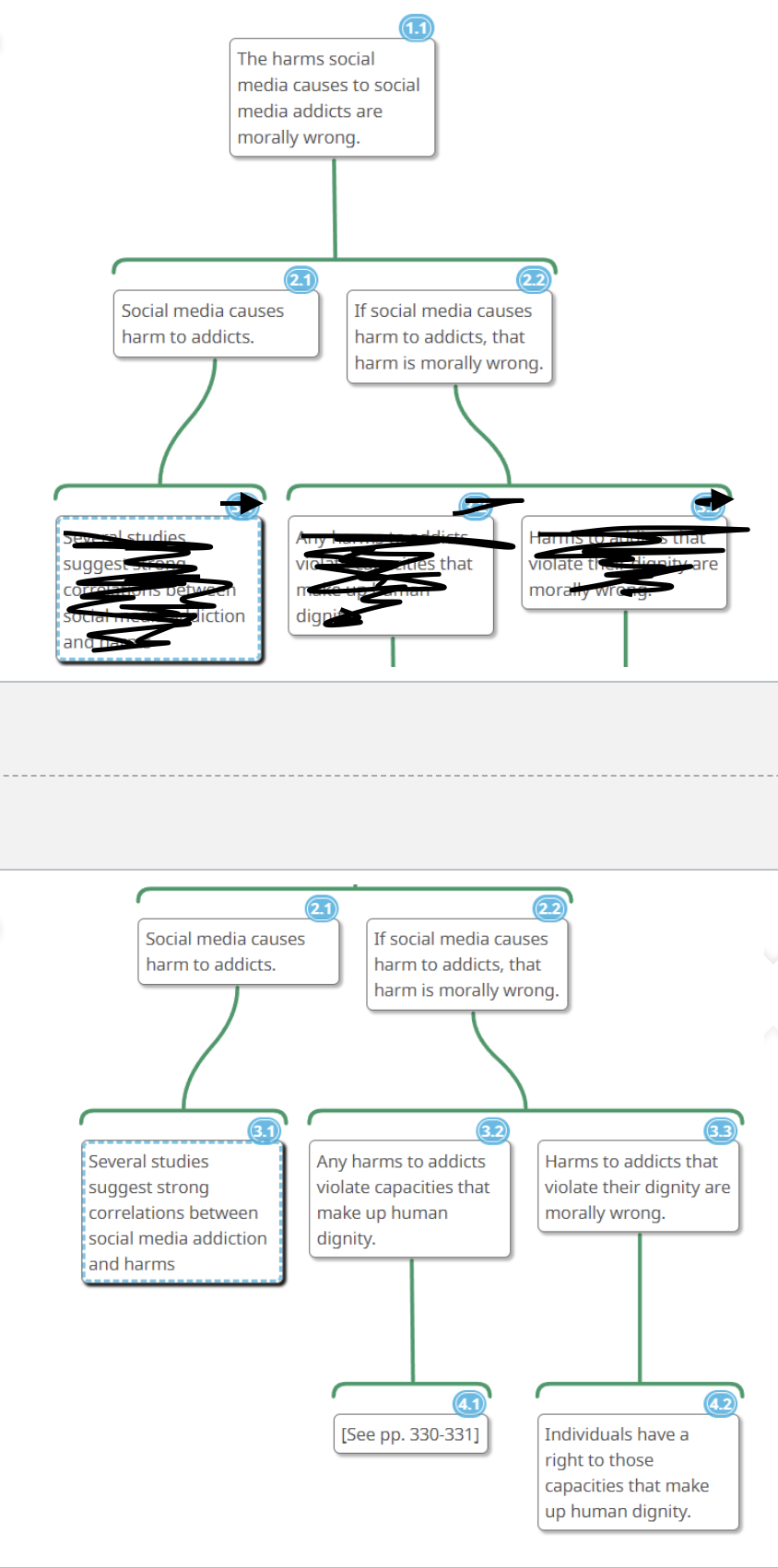
B3.3
Harms to addicts that violate their dignity are morally wrong
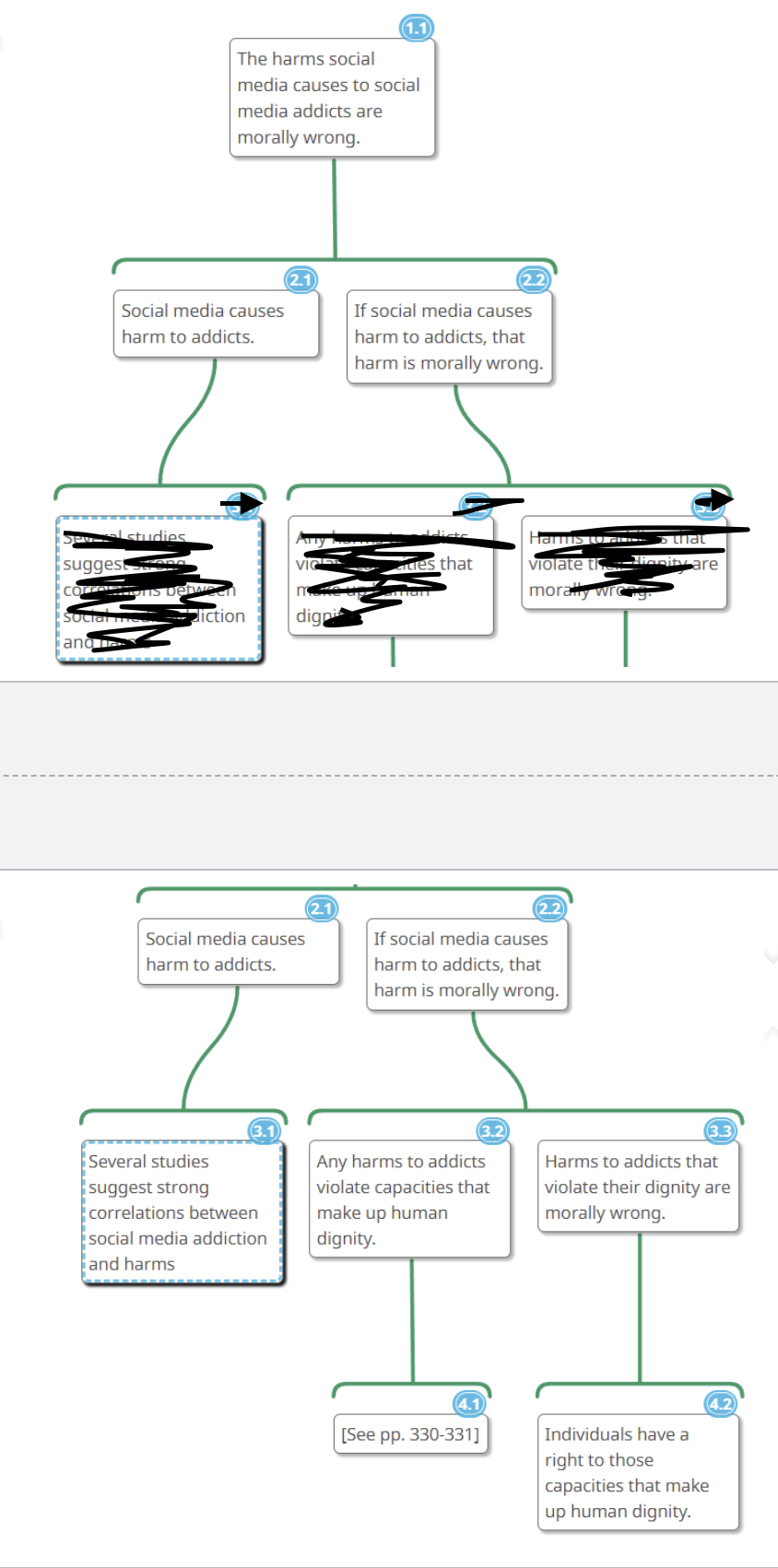
B4.1
Seven capabilities
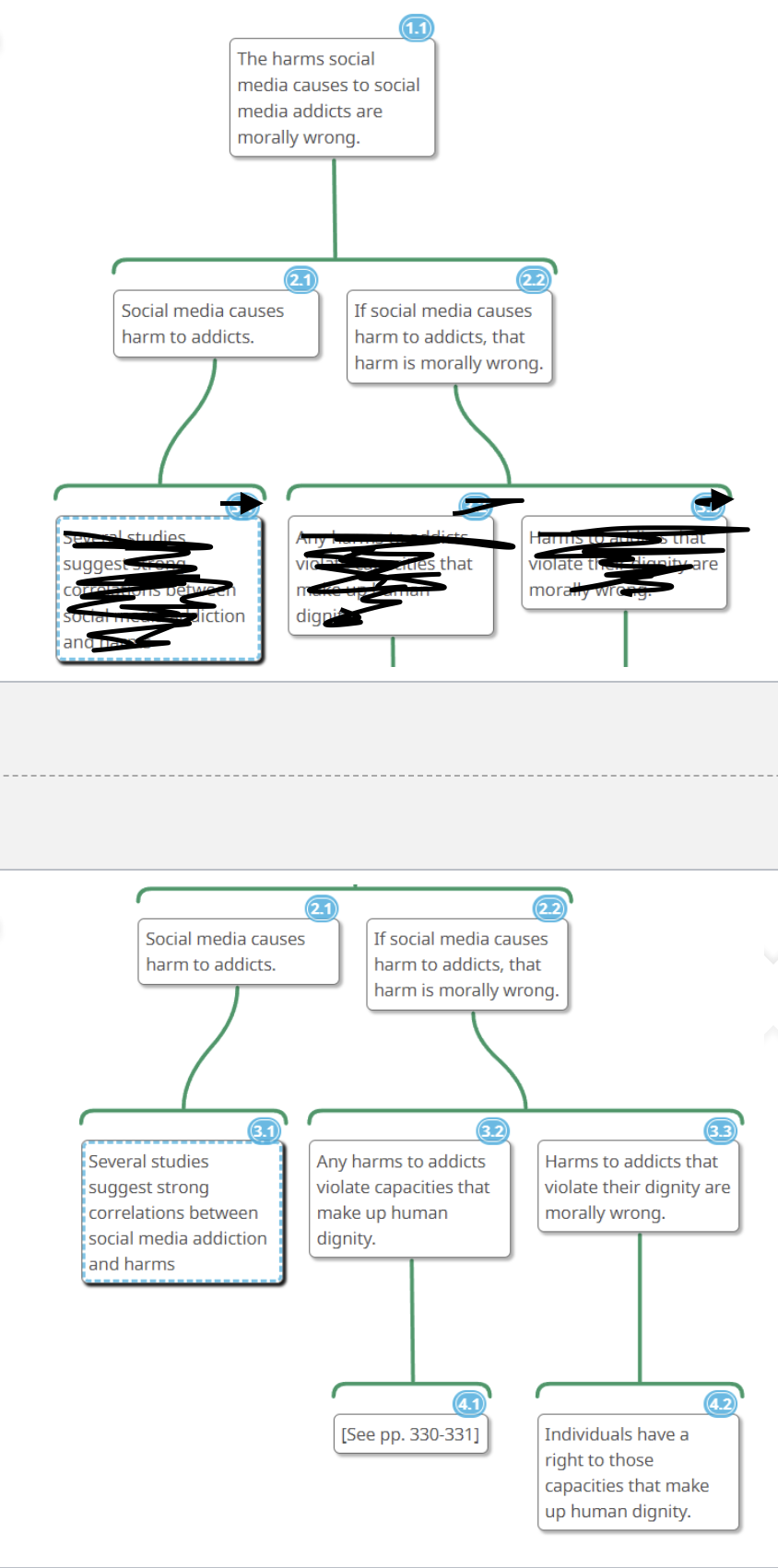
B4.2
Individuals have a right to those capacities that make up human dignity
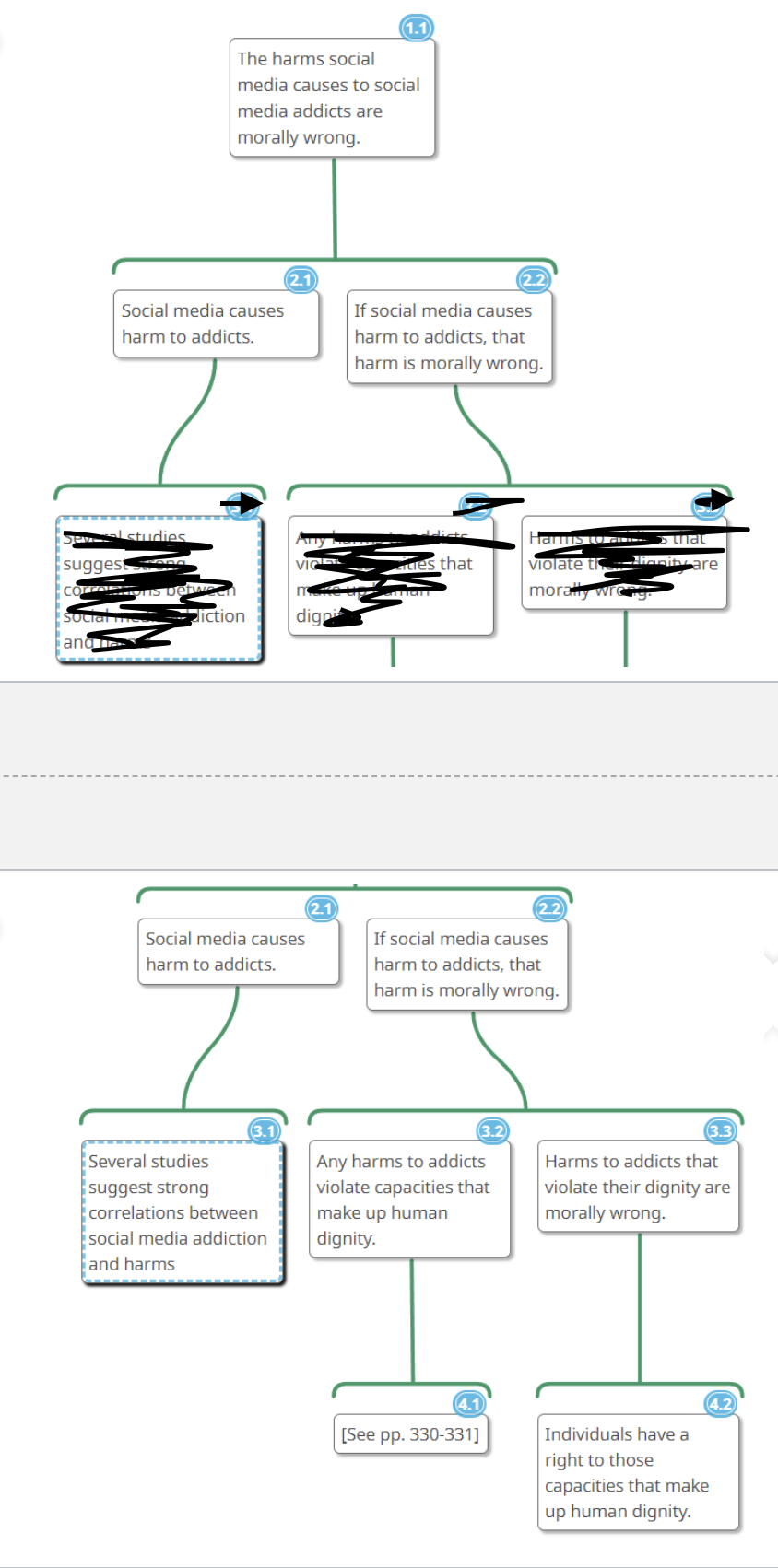
U1.1
Utilitarianism is false
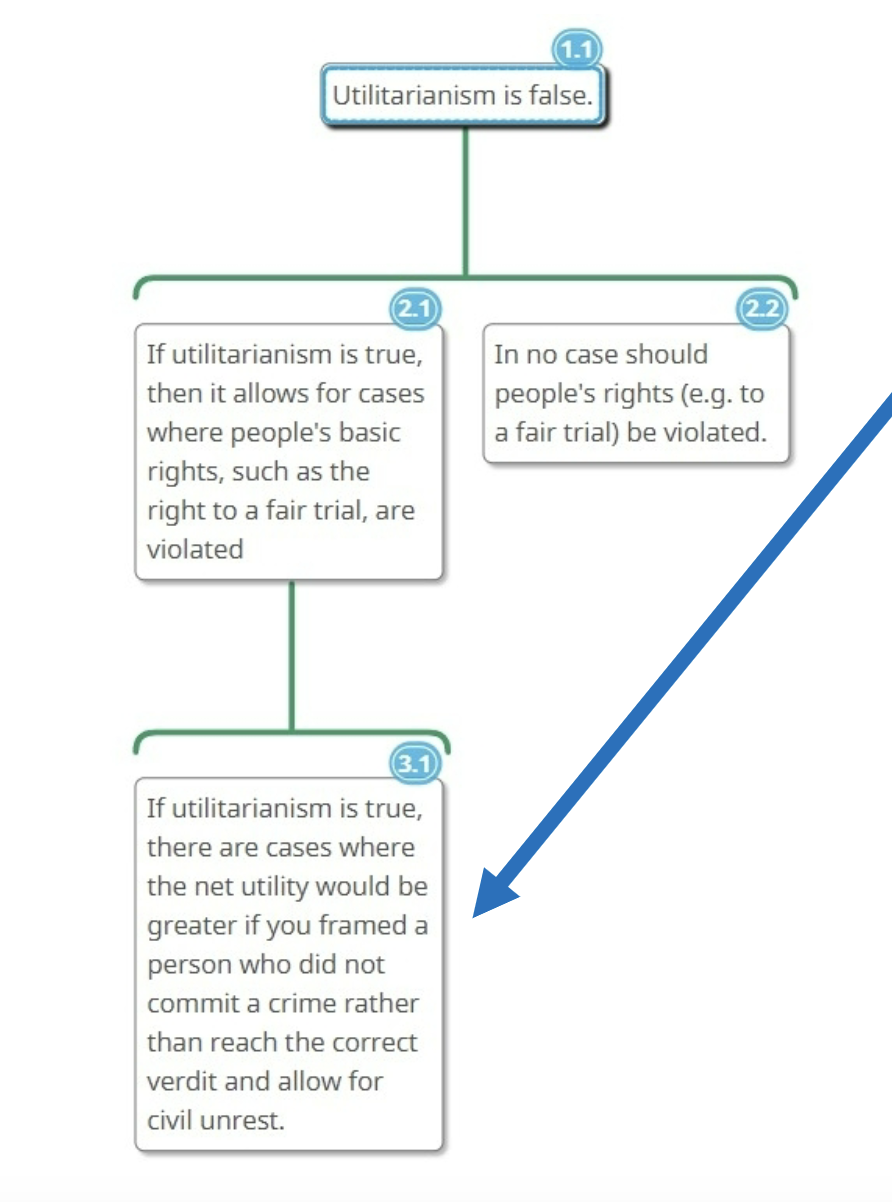
U2.1
If utilitarianism is true, then it allows for cases where people’s basic rights, such as the right to a fair trial, are violated
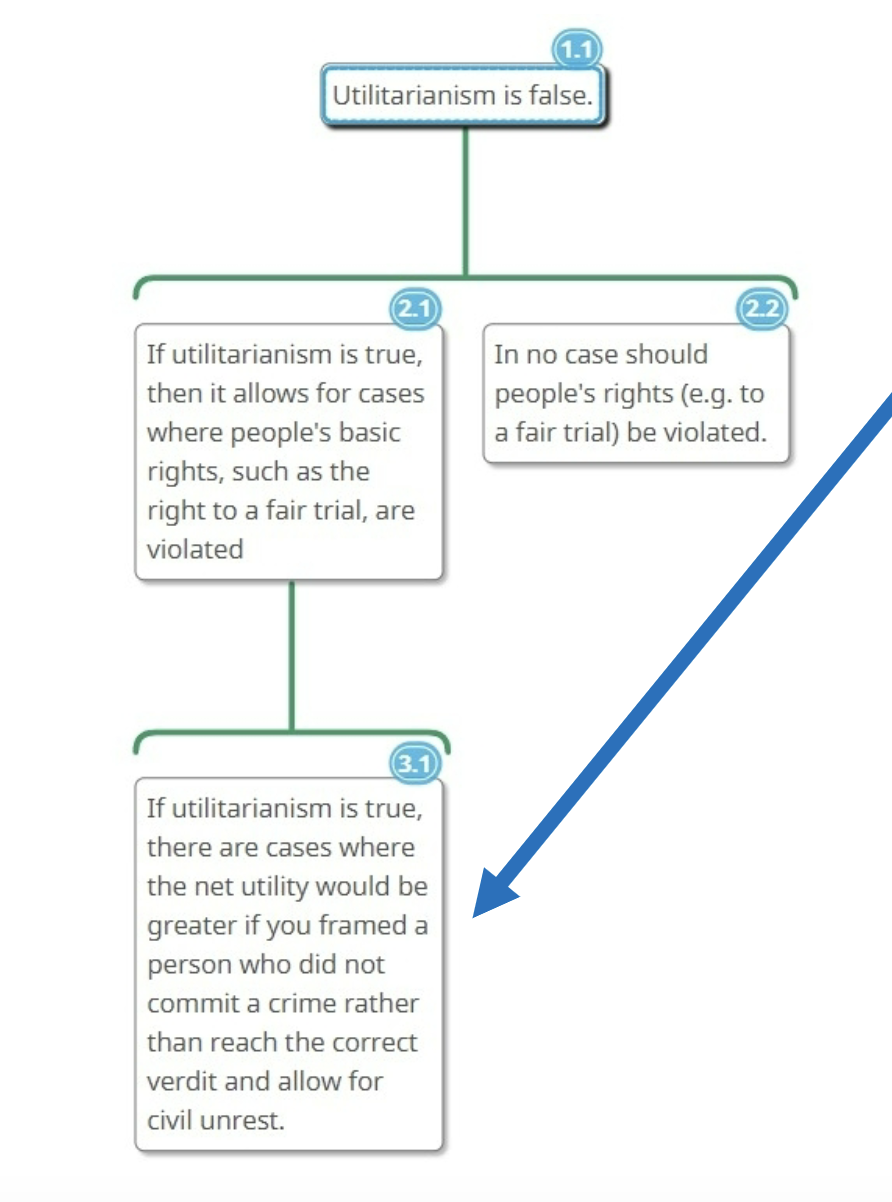
U2.2
In no case should people’s rights be violated (e.g. to fair trial)
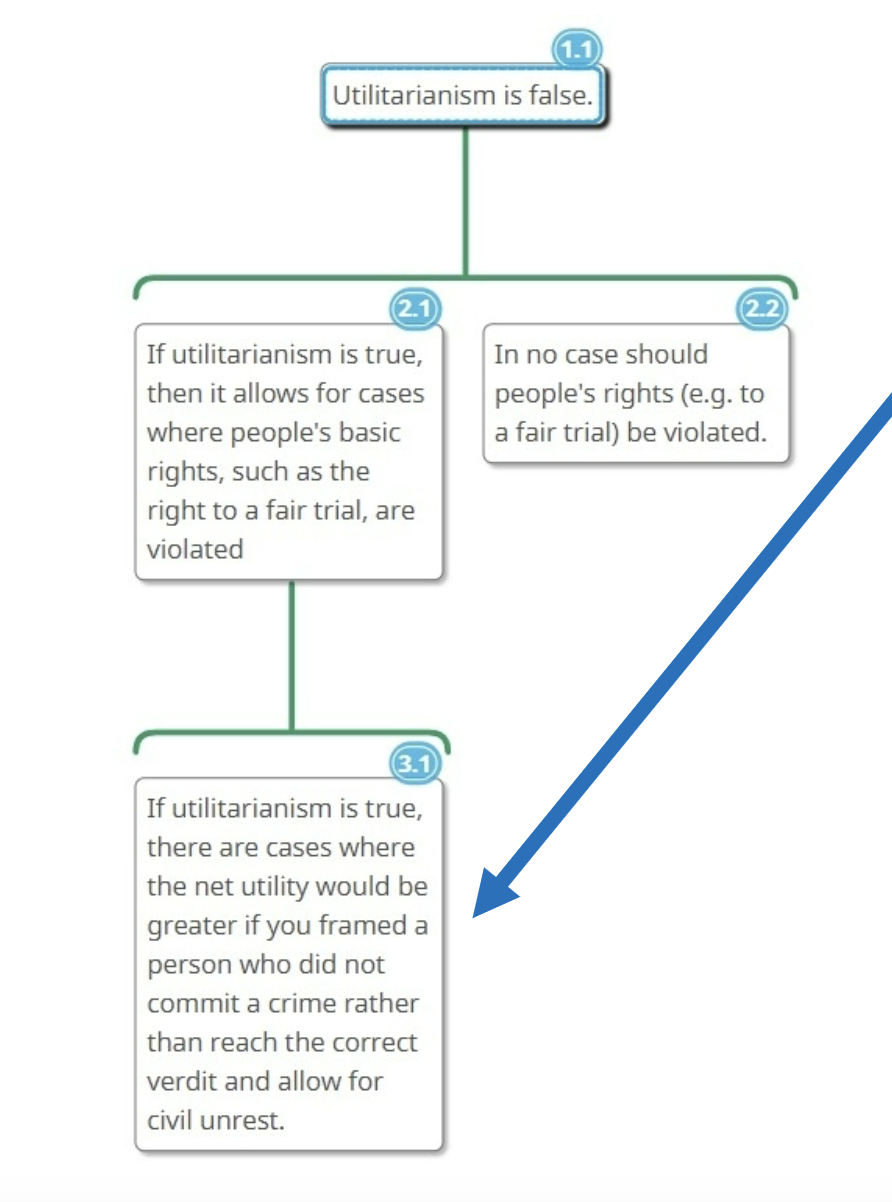
U2.3
If utilitarianism is true, there are cases where the net utility would be greater if you framed a person who did not commit a crime rather than reach the correct verdict and allow for civil unrest.
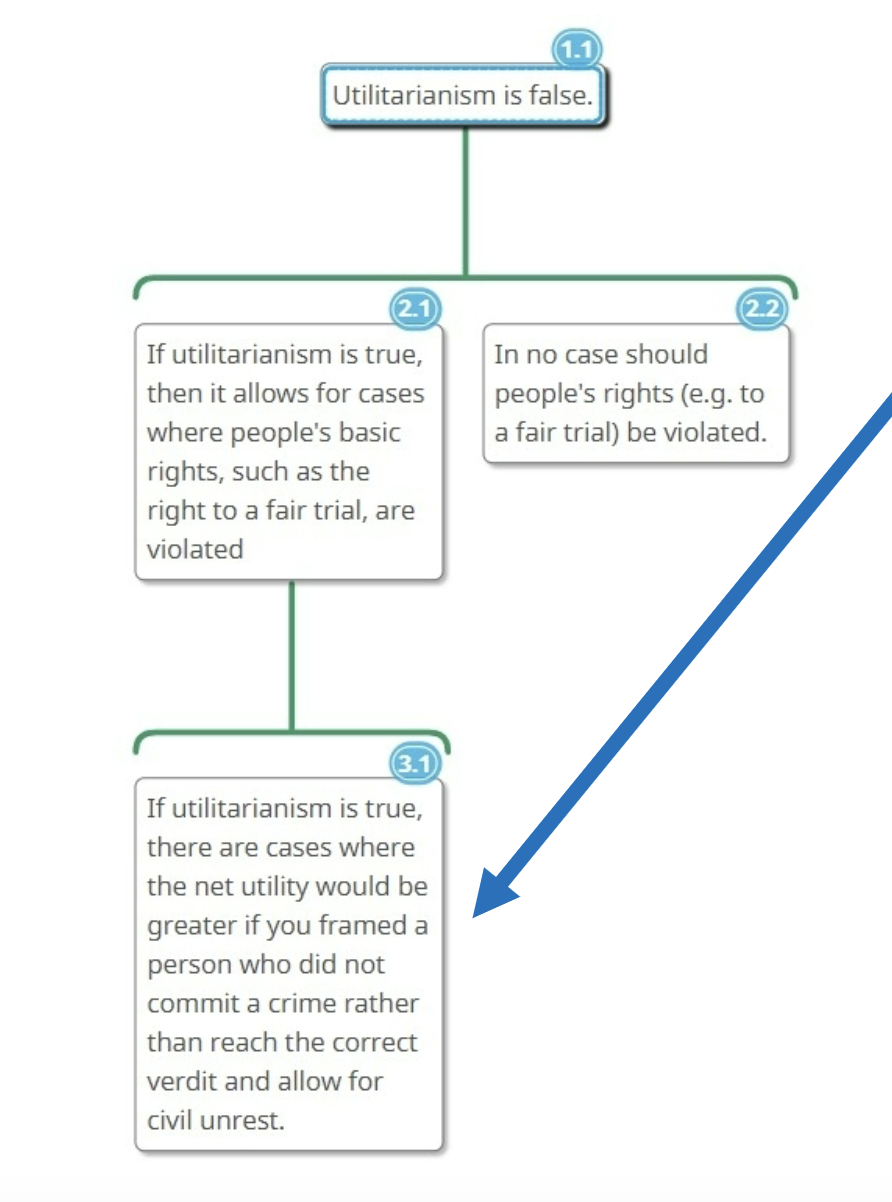
conclusion
The thing being argued for
premises
the reasons offered for the conclusion
main conclusion
conclusion that is not used as a premise in the argument
intermediate conclusion
a conclusion used as a premise in the argument.
Three features that help make social media addictive
1. Intermittent variable rewards (the slot machine effect)
2. Features that take advantage of our need for social validation
and social reciprocity (e.g., likes).
3. Erosion of natural stopping cues (e.g., infinite scrolling).